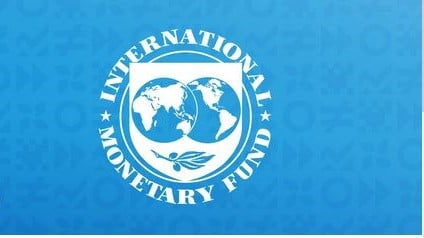News Flash
News Flash

DHAKA, May 14, 2025 (BSS) - The International Monetary Fund (IMF) staff and the Bangladesh authorities have reached staff-level agreement regarding the release of $1.3 billion (third and fourth tranches) of total $4.7 billion loans programme for the country.
They agreed on the policies needed to complete the combined third and fourth reviews under the Extended Credit Facility (ECF), Extended Fund Facility (EFF), and Resilience and Sustainability Facility (RSF), said a press release here today.
The staff-level agreement is subject to approval by the IMF Executive Board and is contingent on the completion of prior actions related to tax revenue mobilization and full implementation of exchange rate reforms.
The IMF statement said that amid significant macroeconomic challenges, the authorities requested an augmentation of SDR 567.2 million (approximately US$762 million) in IMF financial support to Bangladesh under the ECF and EFF arrangements.
This increase would bring the total financial assistance under the ECF and EFF arrangements to SDR 3,035.65 million (about US$4.1 billion), alongside concurrent RSF arrangements of SDR 1 billion (about US$1.3 billion). Upon completion of the combined third and fourth reviews, SDR 983.8 million (about US$1.3 billion) will be made available, comprising SDR 650.5 million (about US$874 million) under the ECF and EFF and SDR 333.3 million (about US$448 million) under the RSF.
Impacted by disruptions from the popular uprising, real GDP growth slowed to 3.3 percent year-on-year (y-o-y) in the first half of FY25; however, it is projected to rebound in the second half reaching 3.8 percent for the full fiscal year. Inflation, which has approached double digits, has begun to decline and is projected to be around 8 1/2 percent (y-o-y) by end of FY25. Nonetheless, domestic factors such as stress in the banking sector and elevated global uncertainty tilt risks to the downside.
To address the emerging external financing gap and support a continued decline in inflation, near-term policy tightening is essential. Fiscal consolidation should focus on the prompt implementation of additional revenue measures-such as streamlining of tax exemptions-while containing non-essential expenditures.
Alongside monetary tightening, enhanced exchange rate flexibility and reinforced foreign exchange reserve buffers will bolster the economy's resilience to external shocks. In this regard, steadfast implementation of the new exchange rate regime will remain critical.
Bangladesh's low tax-to-GDP ratio underscores the urgent need for tax reforms to build a fairer, more transparent, and simpler system while sustainably boosting revenues. Key priorities include streamlining exemptions, enhancing compliance, and delineating tax policy from administration.
In parallel, a comprehensive approach is required to rein in subsidy expenditures in the electricity sector. Increased revenues will also provide more fiscal resources to support the most vulnerable.
A carefully designed strategy for dealing with weak banks is essential to ensuring stability. Swift action is needed to operationalize new legal frameworks that facilitate orderly bank restructuring while safeguarding small depositors.
Robust asset quality reviews for all large and systemic banks, bank restructuring aimed at forward-looking viability, strengthened risk-based supervision, and enhanced governance and transparency will be key to rebuilding trust and supporting the sector's soundness.
At the same time, institutional reforms to bolster the independence and governance of Bangladesh Bank will be essential for ensuring long-term macroeconomic and financial stability and for the effective implementation of broader financial sector reforms.
Strengthening governance and promoting greater transparency are essential to improving the business environment, attracting foreign direct investment, and broadening the export base beyond the ready-made garment sector.
Enhancing resilience to climate change is crucial for mitigating macroeconomic and fiscal risks. Investing in institutional capacity and improving the efficiency of public spending will support progress toward climate objectives.
The government should prioritize climate-responsive fiscal reforms and channel investments into sustainable, climate-resilient infrastructure. In addition, effective management of climate-related risks will help safeguard financial sector stability.
The team thanks the authorities for the productive discussions and excellent collaboration.